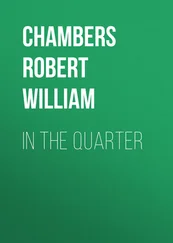Robert Chambers - The Fighting Chance
Здесь есть возможность читать онлайн «Robert Chambers - The Fighting Chance» — ознакомительный отрывок электронной книги совершенно бесплатно, а после прочтения отрывка купить полную версию. В некоторых случаях можно слушать аудио, скачать через торрент в формате fb2 и присутствует краткое содержание. Жанр: foreign_prose, foreign_antique, на английском языке. Описание произведения, (предисловие) а так же отзывы посетителей доступны на портале библиотеки ЛибКат.
- Название:The Fighting Chance
- Автор:
- Жанр:
- Год:неизвестен
- ISBN:нет данных
- Рейтинг книги:5 / 5. Голосов: 1
-
Избранное:Добавить в избранное
- Отзывы:
-
Ваша оценка:
- 100
- 1
- 2
- 3
- 4
- 5
The Fighting Chance: краткое содержание, описание и аннотация
Предлагаем к чтению аннотацию, описание, краткое содержание или предисловие (зависит от того, что написал сам автор книги «The Fighting Chance»). Если вы не нашли необходимую информацию о книге — напишите в комментариях, мы постараемся отыскать её.
The Fighting Chance — читать онлайн ознакомительный отрывок
Ниже представлен текст книги, разбитый по страницам. Система сохранения места последней прочитанной страницы, позволяет с удобством читать онлайн бесплатно книгу «The Fighting Chance», без необходимости каждый раз заново искать на чём Вы остановились. Поставьте закладку, и сможете в любой момент перейти на страницу, на которой закончили чтение.
Интервал:
Закладка:
“Well, that’s all right, isn’t it?” asked Ferrall. “That’s the way I size her up. Isn’t it correct?”
“Yes, in a way. She has all the expensive training of the thoroughbred—and all the ignorance, too. She is cold-blooded because wholesome; a trifle sceptical because so absolutely unawakened. She never experienced a deep emotion. Impulses have intoxicated her once or twice—as when she asked my opinion about running off with Cavendish, and that boy and girl escapade with Rivington; nothing at all except high mettle, the innocent daring lurking in all thoroughbreds, and a great deal of very red blood racing through that superb young body. But,” Ferrall reined in to listen, “but if ever a man awakens her—I don’t care who he is—you’ll see a girl you never knew, a brand-new creature emerge with the last rags and laces of conventionality dropping from her; a woman, Kemp, heiress to every generous impulse, every emotion, every vice, every virtue of all that brilliant race of hers.”
“You seem to know,” he said, amused and curious.
“I know. Major Belwether told me that he had thought of Howard as an anchor for her. It seemed a pity—Howard with all his cold, heavy negative inertia.... I said I’d do it. I did. And now I don’t know; I wish, almost wish I hadn’t.”
“What has changed your ideas?”
“I don’t know. Howard is safer than Stephen Siward, already in the first clutches of his master-vice. Would you mate what she inherits from her mother and her mother’s mother, with what is that poor boy’s heritage from the Siwards?”
“After all,” observed Ferrall dryly, “we’re not in the angel-breeding business.”
“We ought to be. Every decent person ought to be. If they were, inherited vice would be as rare in this country as smallpox!”
“People don’t inherit smallpox, dear.”
“Never mind! You know what I mean. In our stock farms and kennels, we weed out, destroy, exterminate hereditary weakness in everything. We pay the greatest attention to the production of all offspring except our own. Look at Stephen! How dared his parents bring him into the world? Look at Sylvia! And now, suppose they marry!”
“Dearest,” said Ferrall, “my head is a whirl and my wits are spinning like five toy tops. Your theories are all right; but unless you and I are prepared to abandon several business enterprises and take to the lecture platform, I’m afraid people are going to be wicked enough to marry whom they like, and the human race will he run as usual with money the favourite, and love a case of ‘also-ran.’… By the way, how dared you marry me, knowing the sort of demon I am?”
The gathering frown on Mrs. Ferrall’s brow faded; she raised her clear grey eyes and met her husband’s gaze, gay, humourous, and with a hint of tenderness—enough to bring the colour into her pretty face.
“You know I’m right, Kemp.”
“Always, dear. And now that we have the world off our hands for a few minutes, suppose we gallop?”
But she held her horse to a walk, riding forward, grave, thoughtful, preoccupied with a new problem, only part of which she had told her husband.
For that night she had been awakened in her bed to find standing beside her a white, wide-eyed figure, shivering, limbs a-chill beneath her clinging lace. She had taken the pallid visitor to her arms and warmed her and soothed her and whispered to her, murmuring the thousand little words and sounds, the breathing magic mothers use with children. And Sylvia lay there, chilled, nerveless, silent, ignorant why her sleeplessness had turned to restlessness, to loneliness, to an awakening perception of what she lacked and needed and began to desire. For that sad void, peopled at intervals through her brief years with a vague mother-phantom, had, in the new crisis of her career, become suddenly an empty desolation, frightening her with her own utter isolation. Fill it now she could not, now that she needed that ghost of child-comfort, that shadowy refuge, that sweet shape she had fashioned out of dreams to symbolise a mother she had never known.
Driven she knew not why, she had crept from her room in search of the still, warm, fragrant nest and the whispered reassurance and the caress she had never before endured. Yes, now she craved it, invited it, longed for safe arms around her, the hovering hand on her hair. Was this Sylvia?
And Grace Ferrall, clearing her sleepy eyes, amazed, incredulous of the cold, child-like hands upon her shoulders, caught her in her arms with a little laugh and sob and drew her to her breast, to soothe and caress and reassure, to make up to her all she could of what is every child’s just heritage.
And for a long while Sylvia, lying there, told her nothing—because she did not know how—merely a word, a restless question half ashamed, barely enough to shadow forth the something stirring her toward an awakening in a new world, where with new eyes she might catch glimpses of those dim and splendidly misty visions that float through sunlit silences when a young girl dreams awake.
And at length, gravely, innocently, she spoke of her engagement, and the worldly possibilities before her; of the man she was to marry, and her new and unexpected sense of loneliness in his presence, now that she had seen him again after months.
She spoke, presently, of Siward—a fugitive question or two, offered indifferently at first, then with shy persistence and curiosity, knowing nothing of the senseless form flung face downward across the sheets in a room close by. And thereafter the murmured burden of the theme was Siward, until one, heavy eyed, turned from the white dawn silvering the windows, sighed, and fell asleep; and one lay silent, head half buried in its tangled gold, wide awake, thinking vague thoughts that had no ending, no beginning. And at last a rosy bar of light fell across the wall, and the warm shadows faded from corner and curtain; and, turning on the pillow, her face nestled in her hair, she fell asleep.
Nothing of this had Mrs. Ferrall told her husband.
For the first time in her life had Sylvia suffered the caresses most women invite or naturally lavish; for the first time had she attempted confidences, failing because she did not know how, but curiously contented with the older woman’s arms around her.
There was a change in Sylvia, a great change stealing in upon her as she lay there, breathing like a child, flushed lips scarcely parted. Through the early slanting sunlight the elder woman, leaning on one arm, looked down at her, grey eyes very grave and tender—wise, sweet eyes that divined with their pure clairvoyance all that might happen or might fail to come to pass in this great change stealing over Sylvia.
Nothing of this could her husband understand had she words to convey it. There was nothing he need understand except that his wife, meaning well, had meddled and regretted.
And now, turning in her saddle with a pretty gesture of her shoulders:
“I meddle no more! Those who need me may come to me. Now laugh at my tardy wisdom, Kemp!”
“It’s no laughing matter,” he said, “if you’re going to stand back and let this abandoned world spin itself madly to the bow-wows—”
“Don’t be horrid. I repent. The mischief take Howard Quarrier!”
“Amen! Come on, Grace.”
She gathered bridle. “Do you suppose Stephen Siward is going to make trouble?”
“How can he unless she helps him? Nonsense! All’s well with Siward and Sylvia. Shall we gallop?”
All was very well with Siward and Sylvia. They had passed the rabbit-brier country scathless, with two black mallard, a jack-snipe, and a rabbit to the credit of their score, and were now advancing through that dimly lit enchanted land of tall grey alders where, in the sudden twilight of the leaves, woodcock after woodcock fluttered upward twittering, only to stop and drop, transformed at the vicious crack of Siward’s gun to fluffy balls of feather whirling earthward from mid-air.
Читать дальшеИнтервал:
Закладка:
Похожие книги на «The Fighting Chance»
Представляем Вашему вниманию похожие книги на «The Fighting Chance» списком для выбора. Мы отобрали схожую по названию и смыслу литературу в надежде предоставить читателям больше вариантов отыскать новые, интересные, ещё непрочитанные произведения.
Обсуждение, отзывы о книге «The Fighting Chance» и просто собственные мнения читателей. Оставьте ваши комментарии, напишите, что Вы думаете о произведении, его смысле или главных героях. Укажите что конкретно понравилось, а что нет, и почему Вы так считаете.












